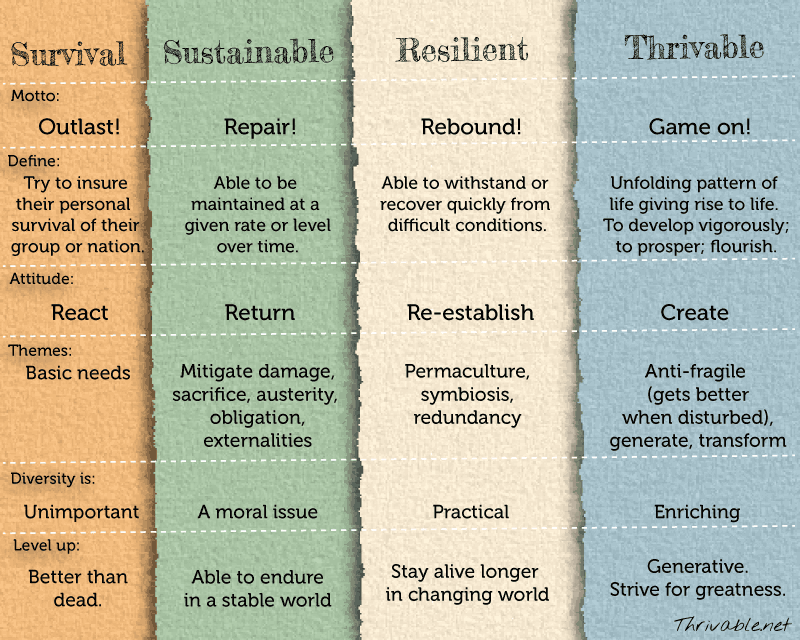Resilience Ain’t Enough
It isn’t enough to repair the damage our progress has brought. The unintended consequences of our efforts to improve quality of life for humans has repercussions and requires action. Yes, and. It is also not enough to manage our risks and be more shock-resistant. Now is not only the time to course correct and be more resilient. It is a time to imagine what we can generate for the world. Not only can we work to minimize our footprint but we can also create positive handprints. It is time to strive for a world that thrives.
As I am wont to do, I had a gathering while in SF. This time it was a brunch filled with amazing people I wouldn’t have a chance to see one on one during my time there. I always enjoy seeing friends meet friends and discovering connection. A couple guests brought someone with them. And one guest took up my twitter invite and joined even though she didn’t know me yet. Everyone brought something to share. Yum. It felt warm and delightful.
Then we got in a debate about resilience and thrivability. Of course I appreciate the friends who not only stand by me but also stand behind thrivability. And, it was really exciting to have someone who wasn’t converted to the thrivability team challenge what it is we mean and to say she didn’t like the term. Juicy.
Where there is a bit of friction, you can get traction.
As a facilitator, you can always be sure I have paper and pens around, so I started sketching it out. Since then, I put together a chart, showed it to a few collaborators, and here it is narrowed down to key points for you. It isn’t enough to strive for resilience, and it won’t motivate enough of us. When we strive to thrive, we create a story of greatness that invites everyone to contribute their very best to making a world that not only works, it also produces joy, delight, and awe.
Thrivability transcends survival modes, sustainability, and resilience. Thrivability embraces flow as the sources of life and joy and meaning, adds to the flow and rides the waves, instead of trying to nullify the effects. Each layer includes and also transcends the previous layer, expanding both interconnections as well as expanding system awareness as each layer hits limits and discovers that more forces are at work than can be explained within their purview. Also, this is not a progression, where you need to move through one before beginning another. You can have aspects of yourself or your organization in multiple places in the chart and movement within the chart can be from any one area to any other. It is not a spectrum of progression. It is a spectrum of viewpoint. And most of us are like electrons, leaping about from point to point and sometimes seemingly nowhere at all… until you look and ask.
Please allow me to amend with gratitudes:
Thank you to attendees of the brunch that triggered action on the chart, especially: Sarah Brooks, Evonne Heyning, Scott Albritton (photos of chart from brunch), Thomas Kriese, David Evan Harris, Jeanie Kirk, Kimberly Olson, Mair Dundon, and Nicole Lazzaro.
Thank you to thrivability champions for assistance in development and refining: Michele Holliday, Irma Wilson, Joshua Foss, Herman Wagter, and Kathryn Bottrell.




